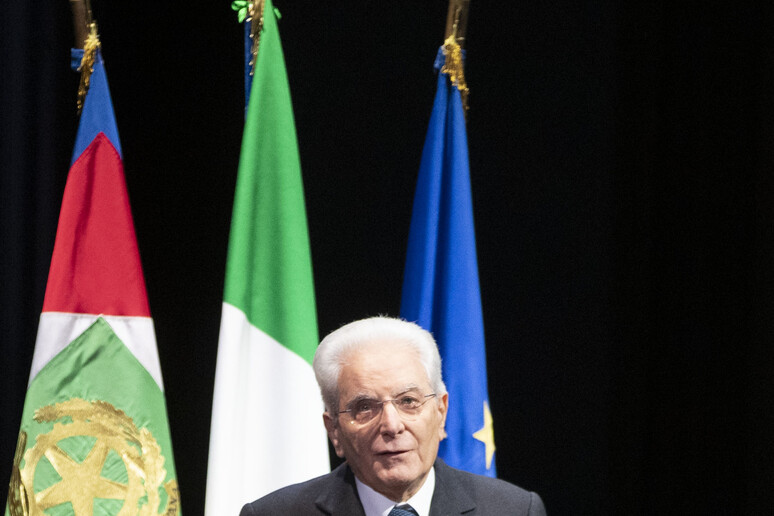President Sergio Mattarella on Friday
denounced the "wall of silence and oblivion" that formed around
the tragedy of the Foibe, the massacre of thousands of Italians
by Tito's partisans in ethnic cleansing at the end of World War
II.
"A wall of silence and oblivion - a mixture of embarrassment,
political opportunism and sometimes serious superficiality -
formed around the terrible suffering of thousands of Italians,
massacred in the Foibe or swallowed up in concentration camps,
driven en masse to abandon their homes, their possessions, their
memories, their hopes, the lands where they had lived, when
faced with the threat of imprisonment if not physical
elimination," said Mattarella at a ceremony marking the Day of
Remembrance at the Quirinale.
The 'Foibe' mass killings took place mainly in Friuli-Venezia
Giulia, Istria and Dalmatia against the local Italian
population.
Foibe are narrow Carsic pits or gorges into which victims were
thrown, sometimes alive.
It is estimated that as many as 15,000 Italians were tortured or
killed by Yugoslav communists who occupied the Istrian peninsula
during the last two years of the war.
Many of the victims were thrown into the narrow mountain gorges
during anti-Fascist uprisings in the area and the exact number
of victims of these atrocities is unknown, in part because
Tito's forces destroyed local population records to cover up
their crimes.
"In those martyred but lively border lands, which for centuries
had been home to peoples, languages and cultures, alternating
fruitful periods of coexistence with moments of conflict and
clashes, the last century reserved the tragic and peculiar fate
of setting side by side, just a few kilometres from each other
in a grim geography of horror, two symbols of the catastrophe of
totalitarianism, racism and ideological and nationalist
fanaticism: the Risiera of San Sabba, a Nazi concentration and
extermination camp; and the Foiba of Basovizza, one of the
places where Tito's ferocity was exercised against the Italian
community," continued Mattarella.
The head of state said that the Foibe and the exodus represented
a "painful trauma" for the nascent Italian Republic, "faced with
the burdensome legacy of a country that had been defeated in the
war".
"Those events constitute a tragedy that cannot be forgotten,"
insisted Mattarella.
"Tragic and harsh pages of history cannot be erased. Attempts at
oblivion, denial or downplaying are an affront to the victims
and their families and do inestimable damage to the collective
conscience of a people and a nation," he concluded.
Foibe Remembrance Day was not set up until 2004, as the tragedy
had been swept under the carpet by anti-Fascists in the postwar
years.
At the end of January the cabinet approved the creation of a
Museum of Remembrance of the Fiobe on the proposal of Premier
Giorgia Meloni and Culture Minister Gennaro Sangiuliano.
"The creation of the museum is a historical duty towards the
Istrian, Fiuman and Dalmatian exiles who suffered under Tito's
communist dictatorship," said Sangiuliano after the cabinet
meeting.
"These tragedies must not be forgotten. They are an important
part of Italian history and must be known and understood by the
new generations".
He said the Lazio region, which Rome belongs to, has pledged to
make a building available for the museum.
And on Thursday the Lower House approved a bill on initiatives
to promote knowledge of the Foibe tragedy and the
Istrian-Fiuman-Dalmatian exodus among the younger generations.
ALL RIGHTS RESERVED © Copyright ANSA











